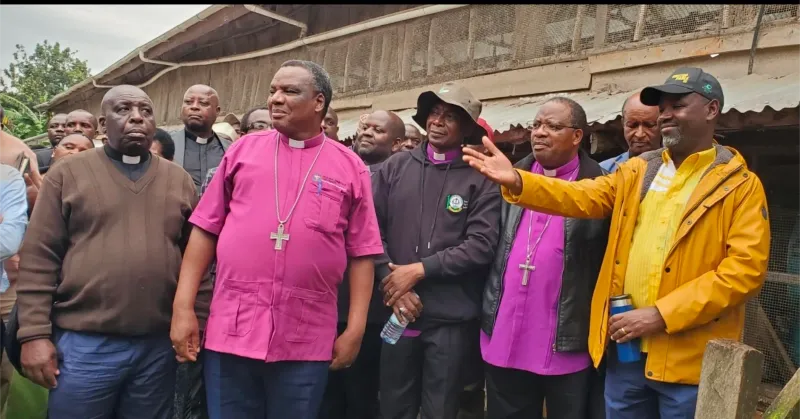
Religious leaders across the Kigezi Sub-region have been encouraged to adopt modern farming practices as a way to strengthen their own livelihoods and motivate their congregations to follow suit. This appeal came from Deputy Speaker of Parliament Thomas Tayebwa during his Monday visit to Kana Model Farm in Rwengaju Model Sub-county, Kabarole District.
The Deputy Speaker toured the farm together with a group of clergy representing the Catholic, Anglican, Pentecostal, and Muslim communities. Kana Model Farm, established by progressive farmer Richard Nyakana, illustrates how just 1.3 acres can be turned into a highly productive agricultural venture.
Tayebwa pointed out that many religious leaders rely heavily on contributions from their congregations, which often fall short of meeting their financial needs. He urged them to make use of the limited land they personally own, as well as land belonging to religious institutions, to create sustainable agricultural enterprises. According to him, Nyakana’s success shows that small parcels of land can yield impressive results when approached with commitment and innovation.
He further called on the clergy to support government efforts aimed at poverty reduction and socio-economic development, noting that communities deeply trust their guidance. Tayebwa acknowledged that land fragmentation is a serious challenge in Kigezi, contributing to food shortages and increasing poverty, but emphasized that modern, intensive farming methods can enable families and institutions to prosper despite limited land.
Bishop Onesmus Asiimwe of the North Kigezi Diocese admitted that he had previously been skeptical about the feasibility of the one-acre model. After seeing the farm’s output firsthand, however, he now believes it can succeed. He urged fellow religious leaders not to stop at touring the farm but to put the lessons learned into practice.
Monsignor Dr. John Vianney, Vicar General of Kabale Catholic Diocese, encouraged religious leaders to set the pace for their congregations by demonstrating practical solutions that believers can emulate. Bishop Onesmus Ngoboka Byengoma of the Pentecostal Church added that economic stability enables Christians to live more fully in accordance with the word of God. He advised them to stay productive and committed to hard work.
About Kana Model Farm
Kana Model Farm occupies 1.3 acres and operates poultry units, zero-grazing dairy systems, biomass production, animal feed processing, and farmer training programs. Nyakana launched the project in 2009 with 200 hens after obtaining a loan from a local farmers’ association. Today, the enterprise is valued at 500 million shillings and has evolved into a multifaceted agribusiness.
The farm now hosts 10,000 chickens, both layers and broilers, along with 13 dairy cows that produce 165 litres of milk daily. It also features a biogas system, manure processing facilities, and a feed production unit, and currently employs at least 15 young people. Nyakana explains that the farm operates on four primary pillars: food security, household income, value addition, and marketing, with a fifth pillar emphasising home improvement and hygiene. He revealed plans for further growth under a three-year strategic plan aimed at acquiring more land and establishing a larger feed processing and preservation facility, noting that long-term feed storage remains a major hurdle.
Nyakana encouraged the youth to stay committed, disciplined, and hardworking if they hope to succeed, and urged them to view agriculture as both profitable and rewarding.













Paul Rubongyera
Leave a Comment
Your email address will not be published.